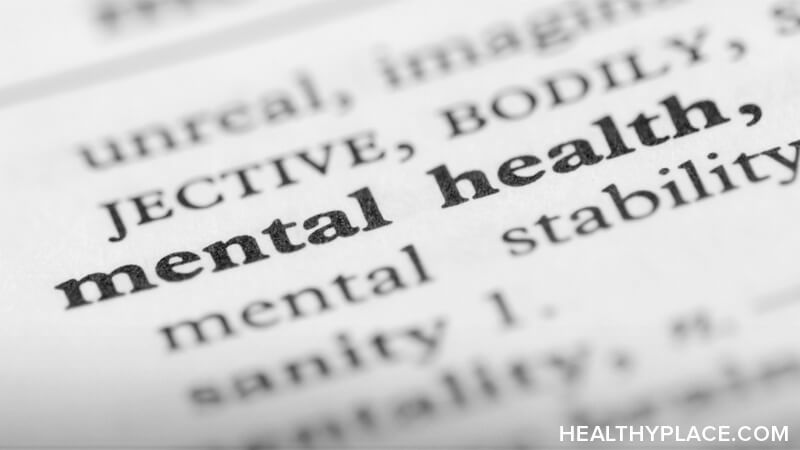Mental Health Definition: What Is Mental Health?

What, exactly, is mental health? The term mental health is used frequently in multiple contexts and settings. While there is no single, universally accepted definition, a general definition of mental health is related to the health and functioning of the mind. It relates to a person's condition with regard to his/her psychological and emotional well-being; how he/she adjusts to society and the ordinary stress of everyday life.
Mental health is not an all-or-nothing concept. Rather than something a person does or does not have, mental health exists on a continuum. The state of someone's mental health can slide up and down that continuum throughout life. That mental health is not a fixed condition is a very good thing because it means that people can take charge of their own mental health and move it up the spectrum toward a state of psychological and emotional wellness (Early Warning Signs of Mental Illness).
Mental Health Definition vs. Mental Illness (What's the Difference?)
Mental health does not mean the absence of mental illness. Yes, both relate to the functioning of the brain and the mind, but each has its own distinct definition.
One definition of mental illness is a dysfunction within the brain that negatively affects someone's thoughts, emotions, and/or behaviors and interferes in his/her ability to live a full life in society (Adult Symptoms of Mental Health Disorders). The dysfunction and distress of mental illness go deeper than just a negative reaction to even extreme life stressors.
A definition of mental health, on the other hand, is someone's state of emotional well-being. It's the subjective feeling of contentment and life satisfaction despite the problems, challenges, and upheavals of life.
The causes of mental illness are complex, of course, but having a diagnosable mental illness is outside someone's control. Mental health, on the other hand, is something that people have the ability to control—to work for and achieve.
The Definition of Mental Health is for Everyone
The definition of mental health affects every person on the planet. Dr. Mark Komrad (2012) asserts that "mental health problems affect all segments of society, regardless of age, gender, education, or ethnicity" (p.40). Indeed, everyone experiences mental health problems, and those problems can make us feel awful. They can negatively affect our thoughts, our emotions, and our behaviors. However, no matter the nature of the bad times, we can all take charge of improving our mental health.
Everyone has a fluctuating state of mental health. It's possible for someone living with mental illness to achieve a high degree of mental health. Likewise, it's possible for someone who does not have a mental illness to experience poor mental health.
What Does Good Mental Health Look Like?
Having good mental health is NOT:
- Living life without problems
- Feeling jolly and happy 100 percent of the time
- Always having positive thoughts
- Being perfect
The above conditions are impossible because we're human and because we live in an imperfect world. Besides, living like this would get boring, and we'd stagnate. People need challenges in order to grow. So hooray for struggles.
Having good mental health does mean:
- Possessing a high degree of self-awareness (to recognize when things aren't right and knowing how or what you want to improve)
- Being tuned in to your thoughts so you can test them for accuracy (for example, are your thoughts focused on the negative and indicating that "everything" is wrong or that you're completely worthless)
- Developing a wellness toolbox of strategies that help you move up the continuum toward your personal definition of optimal wellbeing
- Recognizing the mind-body connection and that improving physical health also improves mental health (and vice-versa)
A Good Mental Health Definition Reflects the Human Condition
People are multidimensional. The whole person encompasses thoughts, feelings, and behaviors; thus, these areas of mental life comprise mental health. A good mental health definition includes how people think, how they feel, and what they do.
Life is complicated and full of ups, downs, pain, joy, twist, turns, setbacks, and triumphs; sometimes things go well, and sometimes they go poorly. Therefore, it's important that a definition of mental health have breathing room, space for fluctuations. Mental health isn't all-or-nothing. It's something that each and every one of us can define and take steps up the spectrum from poor mental health toward optimal mental health.
APA Reference
Peterson, T.
(2019, October 12). Mental Health Definition: What Is Mental Health?, HealthyPlace. Retrieved
on 2025, December 3 from https://www.healthyplace.com/other-info/mental-illness-overview/mental-health-definition-what-is-mental-health



